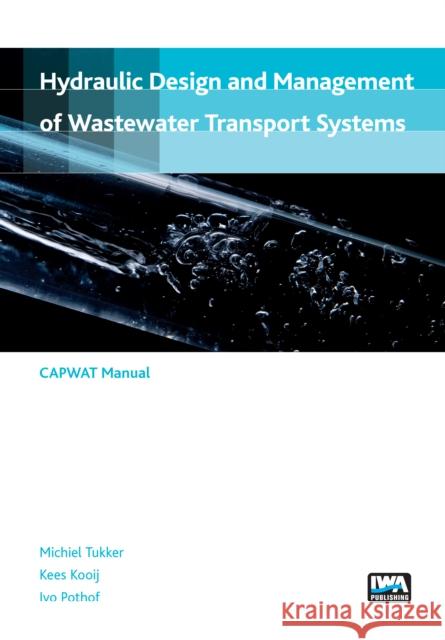Hydraulic design and management of wastewater transport systems » książka
Hydraulic design and management of wastewater transport systems
ISBN-13: 9781780407821 / Angielski / Miękka / 2016 / 154 str.
Hydraulic Design and Management of Wastewater Transport Systems is a manual resulting from the research project CAPWAT (CAPacity loss in wasteWATer pressure pipelines), which researched the mechanisms for the creation, stagnation and discharge of gas bubbles in wastewater pressure pipelines. During this six-year research programme, it was recognised that there is no hydraulic manual/guideline that focuses on the entire wastewater pressure pipeline system, the processes it includes, and the interaction between the pressure pipeline and the pumping station. This manual provides a compilation of all the hydraulic knowledge that is necessary for designing a wastewater transport system and to manage it operationally. The wastewater transport system is the link between the collection and treatment of the wastewater and the collection system includes, among others, the gravity flow sewage system from the house (or consumer) and service connection through street and main sewers up to the suction basins. The transport system, for which this manual was written, includes the suction basin, the sewage pumping station and the pressure pipelines. Wastewater transport systems are becoming more complex due to building larger sewage water treatment plants, wastewater being transported over greater distances and increasingly more (and smaller) pipelines connecting to the main sewers. The operation of the pumping stations is largely determined by how the entire system behaves. Insight into this operation is, therefore, crucial for proper design and management. The central point of the design is to create an independent and safe system with the necessary transport capacity at minimum societal costs. Predominantly, the management aspect focuses on guidelines to maintain the design principles regarding capacity and required energy.
Hydraulic Design and Management of Wastewater Transport Systems is a manual resulting from the research project CAPWAT (CAPacity loss in wasteWATer pressure pipelines), which researched the mechanisms for the creation, stagnation and discharge of gas bubbles in wastewater pressure pipelines. During this six-year research programme, it was recognised that there is no hydraulic manual/guideline that focuses on the entire wastewater pressure pipeline system, the processes it includes, and the interaction between the pressure pipeline and the pumping station.This manual provides a compilation of all the hydraulic knowledge that is necessary for designing a wastewater transport system and to manage it operationally. The wastewater transport system is the link between the collection and treatment of the wastewater and the collection system includes, among others, the gravity flow sewage system from the house (or consumer) and service connection through street and main sewers up to the suction basins. The transport system, for which this manual was written, includes the suction basin, the sewage pumping station and the pressure pipelines.Wastewater transport systems are becoming more complex due to building larger sewage water treatment plants, wastewater being transported over greater distances and increasingly more (and smaller) pipelines connecting to the main sewers. The operation of the pumping stations is largely determined by how the entire system behaves. Insight into this operation is, therefore, crucial for proper design and management.The central point of the design is to create an independent and safe system with the necessary transport capacity at minimum societal costs. Predominantly, the management aspect focuses on guidelines to maintain the design principles regarding capacity and required energy.











